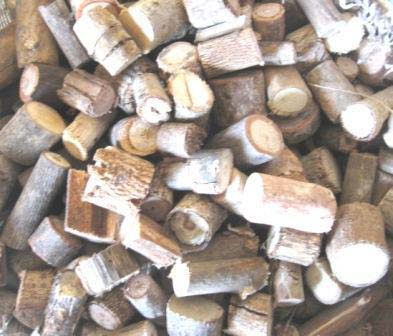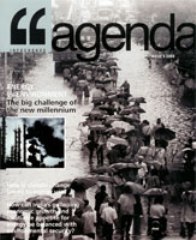/topics/non-renewable-energy
Non-renewable Energy
Growing food demand strains energy and water supplies - An article in the National Geographic on lessons learnt in Gujarat
Posted on 02 Aug, 2012 09:20 AMHow does one understand the nexus between energy and water?
Biofuels in India: Potential, policy and emerging paradigms- A policy paper by National Centre for Agricultural Economics and Policy Research
Posted on 28 Jun, 2012 05:15 PMThis policy paper by National Centre for Agricultural Economics and Policy Research sheds light on use of bio energy as an alternative to fossil fuels.
Career Upliftment Program for Academics (CUPA) - Call for applications by Krishnaa Human Initiatives, Kolkata
Posted on 30 Sep, 2011 10:48 PMOrganization: Krishnaa Human Initiatives
Venue: Kolkata

Krishnaa Human Initiatives is a citizen sector organization registered under the West Bengal Societies Registration Act XXVI of 1961 and enlisted with the NGO partnership system of Planning Commission, Government of India.
Kerala Energy Management Centre invites applications for awards on energy conservation – Apply by October 15, 2011
Posted on 30 Sep, 2011 07:52 PM
Kerala Government has became the first state government in India to establish an Energy Management Centre (EMC) at the state level, aiming primarily to remould and instrumentalise energy sector as a catalyst in promoting a development process which is economically and ecologically sustainable.
Biomass for sustainable development - Lessons for decentralized energy delivery in India – A report by World Bank
Posted on 22 Aug, 2011 07:55 PM It presents a summary of recommendations for enhancing the effectiveness of energy service delivery through a decentralized program, which currently finds a critical place in the Government‘s energy policies and electrification targets.
It presents a summary of recommendations for enhancing the effectiveness of energy service delivery through a decentralized program, which currently finds a critical place in the Government‘s energy policies and electrification targets.
The pilot phase of the Village Energy Security Programme has shown several lessons and the need for improvements.
Small and mini hydel projects – Standing Committee on Energy – Sixteenth Report (2010-2011)
Posted on 03 Aug, 2011 03:57 PMThe Committee took evidence of the representatives of the Ministry of New and Renewable Energy (MNRE) in January, 2011.
MP Government believes that thermal power plants are more important than farmers' livelihoods.
Posted on 04 Jul, 2011 09:41 AMA company is establishing a thermal Power project in the Niwari Block of Tikam Garh. It is one of the poorest and most backward districts of the country. Another agency has been engaged to the job of mediation and preparing the local farmers. Through their communication skills they are convincing the local population to sell their land. The plant will change the overall picture of the area. Not all promises will be fulfilled. They tell that if you give your land, you will get a free world class hospital, and the best education for your children.
It will need about 1500 to 1700 acres of land in Niwari Block of Tikam Garh about 35 km from Jhansi. Land acquisition has started and should be completed in one to two years time. Farmers are being told to cooperate, or their land will be taken by force. SDM Shri RK Gohat is telling the local people that an MOU has been signed between the company and the state government, and that the district administration has nothing to do with this.
Farmers are free to sell and negotiate. The Government has not decided any rate. These are small farmers. Their number will be around 1500. Some even have half a bigha land. Two hundred acres of land has already purchased. It is good agriculture land close to Pareechhka Dam in Jhansi, UP. There is already a power station at the dam. Jhansi is in UP and Tikam Garh is in MP. Distribution of power is yet not known. Orcha, famous tourist place is in Niwari Block.
Low carbon strategies for inclusive growth - An interim report of the Planning Commission's expert group
Posted on 28 Jun, 2011 11:44 PM Some policy measures implied by various options have also been indicated. The main sectors examined in the report are power, transport, industry, buildings and forestry.
Some policy measures implied by various options have also been indicated. The main sectors examined in the report are power, transport, industry, buildings and forestry.
Increased concentrations of Green House Gases (GHGs) and the overall warming of the atmosphere has resulted in changing rainfall patterns, disruption in hydrological cycles, melting of ice caps and glaciers, rise in sea levels, and increase in frequency and intensity of extreme events such as heavy precipitation and cyclonic activities.
These have in turn had serious impact on sustainability of water resources, agriculture, forests and ecosystems, affecting the well being of billions of people on earth. Widespread melting of glaciers and snow cover will reduce melt water from major mountain ranges (e.g. Hindu Kush, Himalaya, Andes) where more than one billion people currently live.
"Climate change" - Understanding the connections with energy use, and how India's galloping economic growth and insatiable appetite for energy can be balanced with environmental security?
Posted on 18 Jun, 2011 12:52 AM
Introduction: Energy versus emissions: The big challenge of the new millennium
By Rakesh Kalshian
To maintain its economic growth rate of 8-10%, India needs all the energy it can get. But the momentum of economic growth overrides crucial environmental concerns.
Hotting up: The science and politics of climate change
By Aditi Sen
The world is hotting up. Climate systems are changing. The 1990s were the hottest decade ever, sea levels rose by 10-20 cm during the 20th century, and atmospheric carbon dioxide levels are 31% higher than in 1750.
Compilation of 300 hands on field activities for community based adaptation
Posted on 20 Jan, 2011 01:42 PM
 This collection of CBA field activities began as a resource for online CBA students. However, as it grew, we decided that it was important to make it more broadly available to CBA development practitioners worldwide. The activities are organized in the following framework.
This collection of CBA field activities began as a resource for online CBA students. However, as it grew, we decided that it was important to make it more broadly available to CBA development practitioners worldwide. The activities are organized in the following framework.





